Results
-
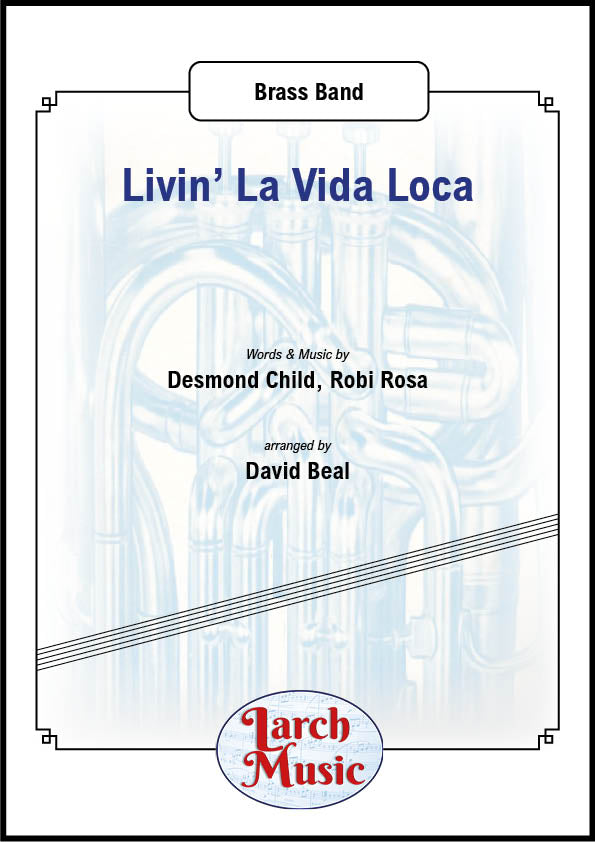 £30.00
£30.00Livin' La Vida Loca - Brass Band Sheet Music Full Score & Parts - LMAM015 - Desmond Child & Robi Rosa - David Beal
COMPOSER: Desmond Child & Robi RosaARRANGER: David BealCLICK HERE TO PURCHASE - THIS ARRANGEMENT IS ONLY DOWNLOADABLE FROM -Together In Electric Dreams(arr. David Beal) Sheet Music Brass Band"Livin' la Vida Loca" (transl. "Livin' the Crazy Life") is a song recorded by Puerto Rican singer Ricky Martin for his fifth studio album and English-language debut, Ricky Martin (1999). The song was written by Draco Rosa and Desmond Child, while the production was handled by the latter. It was released to radio stations by Columbia Records as the lead single from the album on March 27, 1999. A Latin pop and dance song with elements of salsa, surf, and ska, it is about an irresistible, particularly sinister, wild woman who lives on the edge, seducing others into her crazy world. The song received acclaim from music critics, who complimented its lyrics and danceable rhythm. It was ranked as the best 1990s pop song by Elle, and was listed among the Best Latin Songs of All Time by Billboard.Scored here for British Brass Band.Any purchases from this site cannot be made please click on the link above - Any purchases will be refundedAbout Digital DownloadsDigital Downloads are downloadable sheet music files that can be viewed directly on your computer, tablet or mobile device. Once you download your digital sheet music, you can view and print it at home, school, or anywhere you want to make music, and you don't have to be connected to the internet. Just purchase, download and play!PLEASE NOTE: Your Digital Download will have a watermark at the bottom of each page that will include your name, purchase date and number of copies purchased. You are only authorized to print the number of copies that you have purchased. You may not digitally distribute or print more copies than purchased for use (i.e., you may not print or digitally distribute individual copies to friends or students).
In Stock: Estimated dispatch 3-5 working days
-
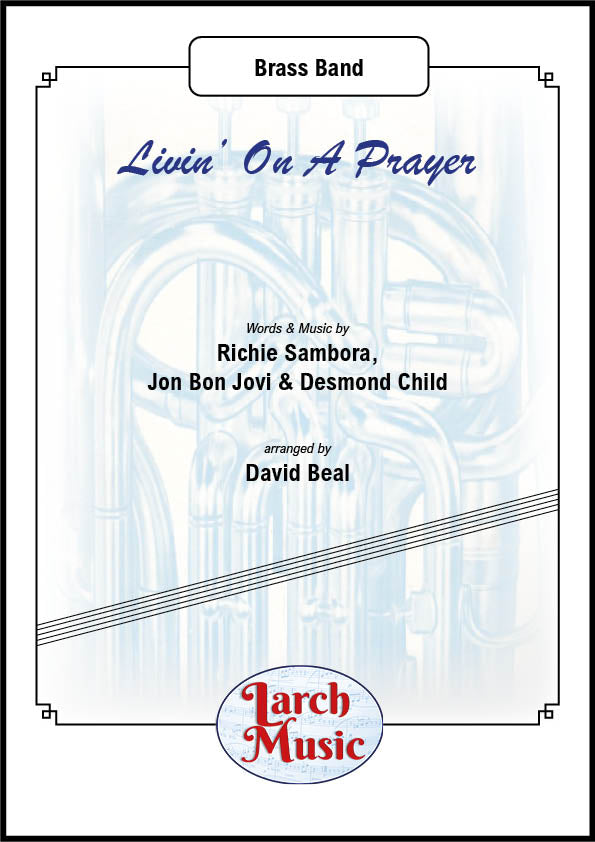 £30.00
£30.00Livin' On A Prayer - Brass Band Sheet Music Full Score & Parts - LMAM019 - Richie Sambora, Jon Bon Jovi & Desmond Child - David Beal
COMPOSER: Richie Sambora, Jon Bon Jovi & Desmond ChildARRANGER: David Beal"Livin' on a Prayer" is a song by the American rock band Bon Jovi from their third studio album, Slippery When Wet. Written by Jon Bon Jovi, Richie Sambora and Desmond Child, the single, released in late 1986, performed strongly on both rock and pop radio and its music video was given heavy rotation at MTV, giving the band their first song to reach No. 1 on the Billboard Mainstream Rock chart and their second consecutive No. 1 Billboard Hot 100 hit.Regarded as the band's signature song, "Livin' on a Prayer" has topped fan-voted lists and re-charted around the world decades after its release. In 2013, the song was certified triple platinum for over 3 million digital downloads and has since sold over 13 million worldwide, making it one of the best selling singles of all time.Scored here for British Brass Band.Any purchases from this site cannot be made please click on the link above
In Stock: Estimated dispatch 3-5 working days
-
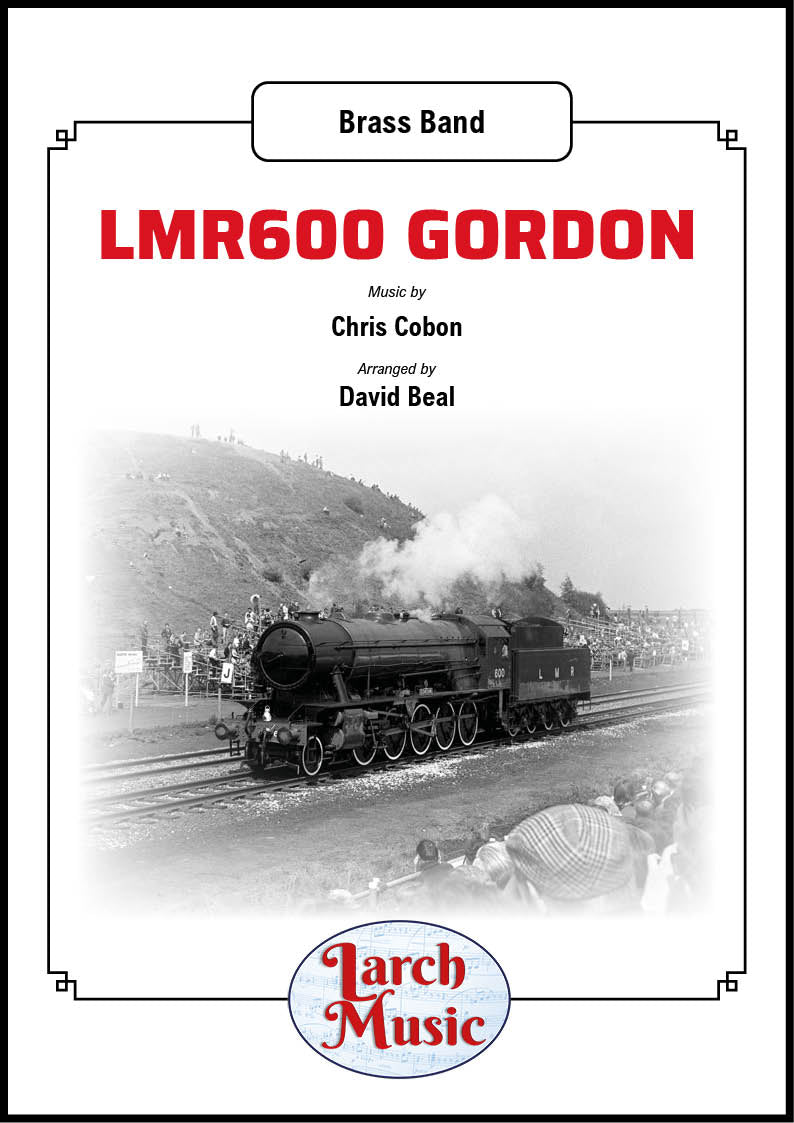 £30.00
£30.00LMR600 Gordon - Brass Band - LM929
COMPOSER: Chris CobonARRANGER: David BealLMR 600 GordonLongmoor Military Railway number 600 Gordon is a preserved British steam locomotive.An enormous engine it has a 2-10-0 design and was built in Glasgow in 1943.Gordon served on the Longmore Military Railway which terminated in the Hampshire village of Liss, the village where I grew up.I later moved to Kidderminster and discovered that Gordon was now on the preserved railway which starts in the town; The Severn Valley Railway.No longer in service, Gordon is on display in the engine house at Highley.This piece portrays Gordon in all his glory thundering along the tracks and with the time signature changes, crossing over points
In Stock: Estimated dispatch 3-5 working days
-
 £30.00
£30.00Londonderry Air - Brass Band - MM021 - Traditional - Tim Middleton
COMPOSER: TraditionalARRANGER: Tim MiddletonThe famous Irish air arranged as a Tenor Horn FeatureA must for your summer concerts!
In Stock: Estimated dispatch 3-5 working days
-
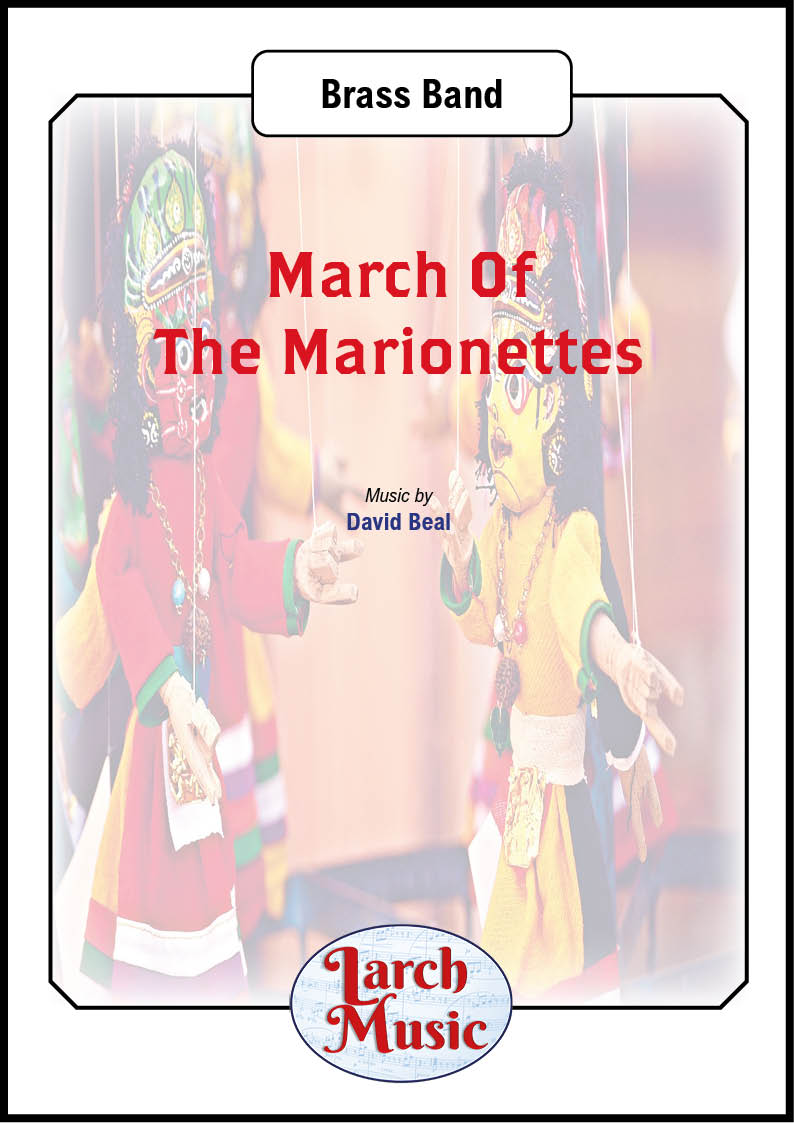 £30.00
£30.00March Of The Marionettes - Brass Band Sheet Music Full Score & Parts - LM160
COMPOSER: David BealAn original composition starting in an almost bolero style and finishing with a tradional style march in 2/4LM160 - ISMN :9790570001606
In Stock: Estimated dispatch 3-5 working days
-
 £30.00
£30.00Marionettes Espagnole (Cesar Cui arr. by David Beal) - Brass Band Full Score and Parts - LM046
COMPOSER: Cesar CuiARRANGER: David BealA piece known by sound but not by titleAn excellent concert favourite, loved by all
In Stock: Estimated dispatch 3-5 working days
-
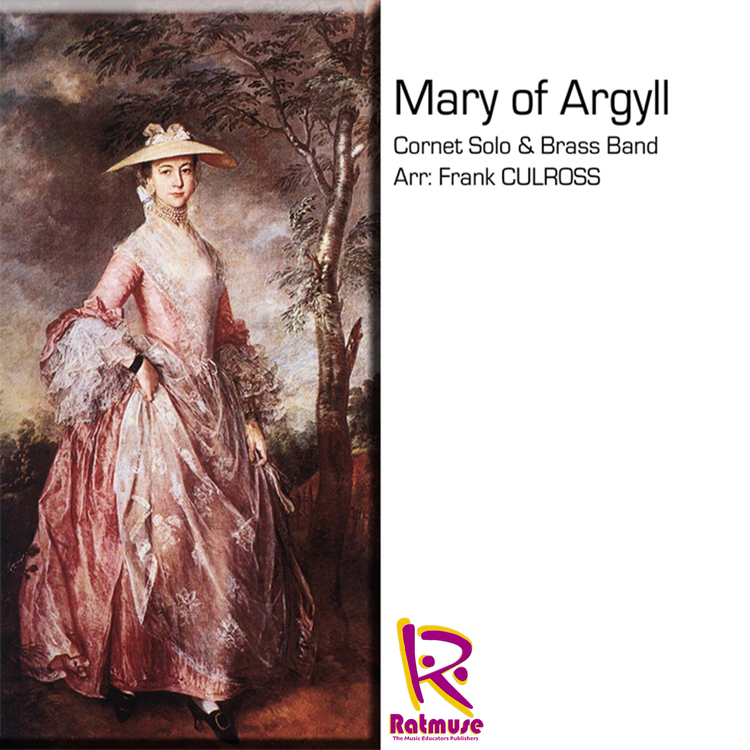 £30.00
£30.00Mary of Argyll - Bb Cornet & Brass Band - Frank Culross
COMPOSER: Frank CulrossFrom the pen of Frank Culross comes this beautiful setting for solo cornet and brass band of the tranditional Scottish tune Mary of Argyle. Originally arranged for the 11 year old (now professional Cornet player) Ian Culross, it has been expanded and developed into a lyrical masterpiece for Brass Band.CLICK HERE TO HEAR THIS PIECE - Mary Of Argyll (Solo Cornet & Brass Band) arr: Frank Culross
In Stock: Estimated dispatch 3-5 working days
-
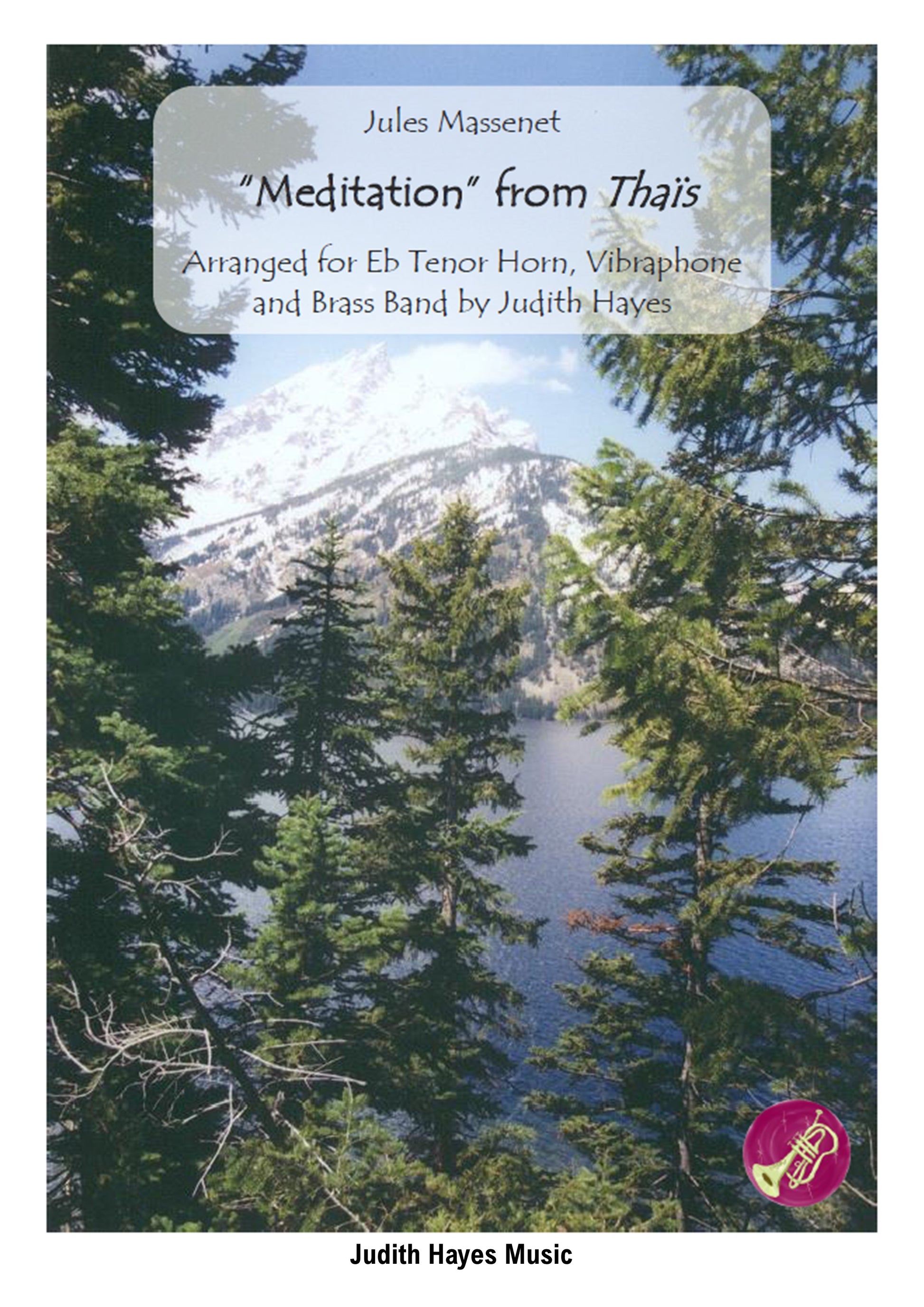 £30.00
£30.00Meditation from "Thais" - Eb Horn with Vibraphone & Brass Band - Massenet - Judith Hayes
COMPOSER: MassenetARRANGER: Judith HayesA great new arrangement from Judith Hayes featuring Tenor Horn & VibraphoneAlso available with Piano Accompaniment.
In Stock: Estimated dispatch 3-5 working days
-
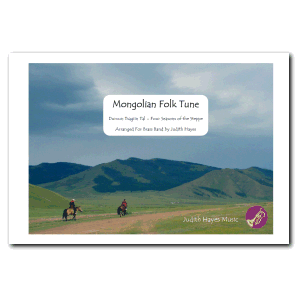 £30.00
£30.00Mongolian Folk Tune - Brass Band - Traditional - Judith Hayes
COMPOSER:TraditionalARRANGER: Judith HayesDurvun Tsagiin Tal - Four Seasons of the Steppe
In Stock: Estimated dispatch 3-5 working days
-
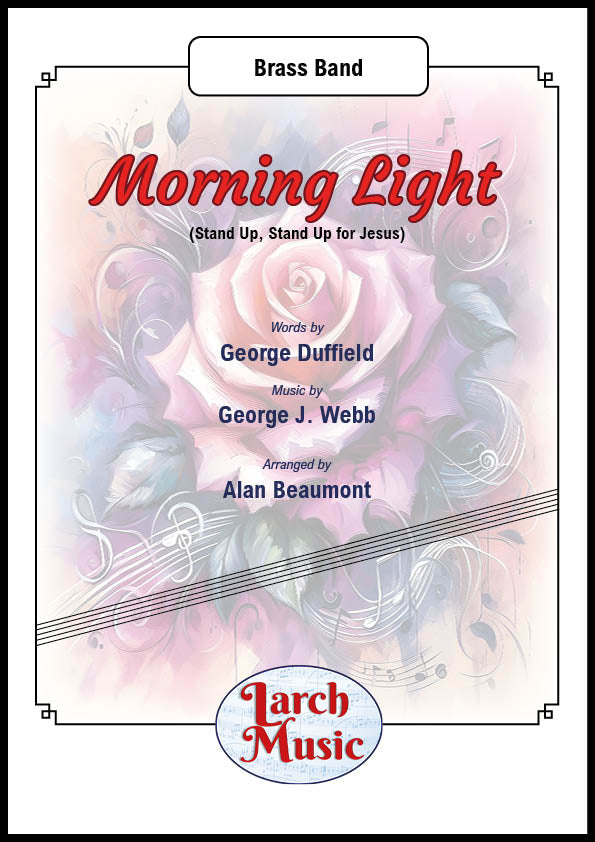 £30.00
£30.00Morning Light (Stand Up, Stand Up for Jesus) - Brass Band Sheet Music Full Score & Parts - LM605 - George Duffield & George J. Webb
COMPOSER: George Duffield & George J. WebbARRANGER: Alan BeaumontBased on the Hymn Tune 'Stand Up, Stand Up for Jesus'"Stand Up, Stand Up for Jesus" is an American Christian hymn. It was written byGeorge Duffield Jr.in 1858 and is based on the dying words of Dudley Atkins Tyng.The traditional tune "Webb" was composed by George James Webb, based on the melody ofFranz Schubert's"Die Forelle" ("The Trout").Makes a great concert opener or closerLM605 - ISMN : 9790570006052
In Stock: Estimated dispatch 3-5 working days










